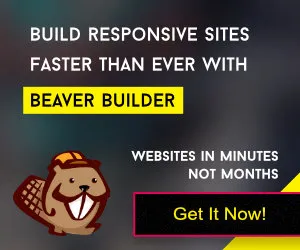Table of Contents
Toggle Marketing your website effectively is crucial for attracting traffic, engaging your audience, and achieving your business goals. In today’s digital landscape, a well-executed online internet marketing strategy can significantly impact your online presence and business success. With the right combination of tactics, you can increase your website’s visibility in search engine results, build credibility with your target audience, and drive meaningful conversions. Effective website online internet marketing encompasses a wide range of techniques, from search engine optimization (SEO) and content marketing to social media engagement and email campaigns. By implementing these strategies, you can create a robust online presence that not only attracts visitors but also keeps them coming back, ultimately contributing to your business’s growth and success.
Marketing your website effectively is crucial for attracting traffic, engaging your audience, and achieving your business goals. In today’s digital landscape, a well-executed online internet marketing strategy can significantly impact your online presence and business success. With the right combination of tactics, you can increase your website’s visibility in search engine results, build credibility with your target audience, and drive meaningful conversions. Effective website online internet marketing encompasses a wide range of techniques, from search engine optimization (SEO) and content marketing to social media engagement and email campaigns. By implementing these strategies, you can create a robust online presence that not only attracts visitors but also keeps them coming back, ultimately contributing to your business’s growth and success.
This article will guide you through various online internet marketing tactics that can help you promote your website and reach your target audience effectively. We’ll explore the power of social media online internet marketing in building brand awareness and driving traffic, the importance of link building in improving your site’s authority and search engine rankings, and the fundamental role of SEO in making your website more discoverable. Additionally, we’ll discuss the benefits of participating in online forums and communities to establish your expertise and connect with potential customers. By leveraging these diverse strategies, you can create a comprehensive online internet marketing approach that addresses different aspects of online promotion, ensuring your website stands out in a crowded digital marketplace and attracts the right audience to achieve your business objectives.
Social Media Online Internet Marketing
Social media has become an indispensable tool for driving traffic to websites due to its massive user base and powerful targeting capabilities. By leveraging platforms like Facebook, Instagram, Twitter, and LinkedIn, businesses can reach and engage with their target audience where they already spend significant time online. Creating and sharing compelling, shareable content on social media can increase brand visibility and encourage users to visit your website for more information.
Social platforms also offer advanced advertising options that allow precise targeting based on demographics, interests, and behaviors, enabling businesses to put their content in front of the most relevant potential visitors. Additionally, social media facilitates direct interaction with customers, building relationships that can lead to increased website visits and brand loyalty. By consistently posting links to website content, optimizing social profiles with clear calls-to-action, and engaging in conversations, businesses can create multiple pathways for users to discover and visit their websites, ultimately driving more traffic and potential conversions.
Facebook Marketing
Why Use Facebook?
Using Facebook for marketing your website is essential due to its extensive reach and advanced targeting capabilities, making it one of the most effective platforms for driving traffic. With over 1.73 billion daily active users, Facebook allows businesses to connect with a vast audience, ensuring that online internet marketing efforts reach potential customers where they already engage online. The platform supports various content formats, including images, videos, and articles, which can be strategically shared to encourage clicks back to your website. Additionally, Facebook’s advertising tools enable precise targeting based on user demographics and interests, optimizing campaigns for higher click-through rates and conversions. Utilizing features like call-to-action buttons and engaging posts can further enhance user interaction and direct traffic effectively. By integrating Facebook into your online internet marketing strategy, you can not only increase website visits but also build brand awareness and customer loyalty in a competitive digital landscape.
How to Market on Facebook:
- Create a Business Page: Set up a professional page with a clear profile picture and cover photo.
- Post Regularly: Share engaging content like blog posts, videos, and infographics.
- Use Facebook Ads: Target specific demographics with Facebook Ads Manager.
- Engage with Followers: Respond to comments and messages promptly.
- Join Groups: Participate in relevant groups to share your expertise and build relationships.
Instagram Marketing
Why Use Instagram?
Instagram is a powerful online internet marketing platform for driving website traffic due to its massive user base of over 1.73 billion daily active users and highly visual nature. The platform offers several effective tools for marketers, including the ability to add clickable links in Stories, create engaging Reels, and utilize a “Link in Bio” feature to direct followers to multiple web pages. Instagram’s advanced targeting capabilities allow businesses to reach specific demographics, while its various content formats (images, videos, and Stories) provide diverse opportunities to showcase products or services and encourage website visits. The platform’s built-in analytics tool, Instagram Insights, enables marketers to track post-performance and audience engagement, helping to optimize content strategies for maximum traffic generation. Additionally, collaborating with influencers and utilizing Instagram’s shopping features can significantly expand a brand’s reach and drive more potential customers to its website. By consistently creating compelling content and strategically using Instagram’s features, businesses can effectively funnel a substantial portion of their Instagram audience to their websites, potentially increasing conversions and sales.
How to Market on Instagram:
- Set Up a Business Profile: Include a clear bio with a link to your website.
- Post High-Quality Images: Use professional photos and graphics to attract attention.
- Leverage Stories: Share behind-the-scenes content and promotions in Instagram Stories.
- Use Hashtags: Research and use relevant hashtags to increase visibility.
- Collaborate with Influencers: Partner with influencers to reach a broader audience.
Twitter Marketing
Why Use x.com (formerly Twitter)?
X.com (formerly Twitter) is a powerful platform for driving website traffic due to its large user base of 4.8 billion monthly visits and real-time nature. The platform’s concise format encourages sharing of links and content, making it ideal for promoting website articles, products, or services. X.com offers advanced targeting capabilities, allowing businesses to reach specific demographics and interests, which can lead to higher-quality traffic. The platform’s advertising tools, including Website Buttons and Dynamic Product Ads, are specifically designed to drive website visits and conversions. X.com also provides robust analytics through its Pixel technology, enabling marketers to track cross-device conversions and measure return on ad spend. With features like conversation targeting and the ability to retarget website visitors, X.com offers unique opportunities to engage potential customers and funnel them to your website, making it an essential tool in any digital online internet marketing strategy aimed at increasing web traffic.
How to Market on x.com (formerly Twitter):
- Optimize Your Profile: Use a professional profile picture and a compelling bio.
- Tweet Regularly: Share news, updates, and valuable content frequently.
- Engage with Users: Reply to tweets, retweet relevant content, and join x.comTwitter chats.
- Use Hashtags: Incorporate trending and relevant hashtags to increase reach.
- Run x.com Ads: Use Twitter Ads to promote tweets and accounts.
LinkedIn Marketing
Why Use LinkedIn?
LinkedIn is a powerful online internet marketing platform for driving website traffic, particularly for B2B businesses and professionals. With over 1.7 billion monthly visits, LinkedIn offers access to a vast network of professionals and decision-makers across industries. The platform’s business-oriented nature makes it ideal for sharing industry insights, thought leadership content, and company updates that can attract high-quality traffic to your website. LinkedIn’s advanced targeting capabilities allow you to reach specific demographics, job titles, and industries, ensuring your content is seen by the most relevant audience. Features like LinkedIn Articles, company pages, and sponsored content provide multiple avenues to showcase your expertise and link back to your website. Additionally, LinkedIn’s Groups and networking features enable you to build relationships and engage with potential customers, further increasing the likelihood of driving traffic to your site. By consistently sharing valuable content, optimizing your company profile, and leveraging LinkedIn’s advertising tools, you can effectively funnel a professional audience to your website, potentially leading to increased leads, conversions, and business opportunities.
How to Market on LinkedIn:
- Create a Company Page: Set up a comprehensive company profile.
- Share Industry Insights: Post articles, case studies, and professional updates.
- Join Groups: Participate in LinkedIn groups relevant to your industry.
- Use LinkedIn Ads: Target professionals with LinkedIn’s advertising options.
- Network Actively: Connect with industry peers and potential clients.
Pinterest Marketing
Why Use Pinterest?
Pinterest is a powerful platform for driving website traffic due to its massive user base of over 442 million active users and unique position as a visual search engine. By creating engaging, keyword-optimized pins that link to valuable content on your website, you can significantly increase your visibility and reach on the platform. Pinterest’s algorithm rewards fresh, relevant pins, so consistently creating new content and using relevant keywords in pin descriptions and board titles is key to ranking well. The platform’s long-lasting pin lifespan means your pins can continue driving traffic for months or even years after being posted. Additionally, Pinterest users tend to have higher incomes, making them ideal potential customers. By leveraging Pinterest’s visual nature, search functionality, and targeted audience, businesses can effectively drive high-quality traffic to their websites and boost conversions.
How to Market on Pinterest:
- Set Up a Business Account: Optimize your profile with keywords and a website link.
- Create Pins: Design visually appealing pins with clear descriptions.
- Organize Boards: Group pins into themed boards for better user experience.
- Use Rich Pins: Enable Rich Pins to provide more context about your content.
- Engage with Pinners: Repin, comment, and like pins to build a community.
SEO (Search Engine Optimization)
SEO (Search Engine Optimization) is a crucial online internet marketing strategy for driving organic traffic to your website by improving its visibility in search engine results. By optimizing your website’s content, structure, and technical elements, you can increase its chances of ranking higher for relevant keywords, making it more likely for potential customers to find you when searching online. SEO offers long-term benefits, as well-optimized content can continue to attract traffic for months or even years after publication. Unlike paid advertising, organic search traffic is free and often perceived as more trustworthy by users. Additionally, SEO helps improve user experience by making your website more navigable and relevant to searchers’ intent. With over 53% of website traffic coming from organic search, implementing SEO best online internet marketing practices can significantly boost your online presence, increase brand awareness, and ultimately drive more qualified leads to your website. As search engines continually refine their algorithms, maintaining a strong SEO strategy is essential for staying competitive in the digital landscape and ensuring your target audience can easily find and engage with your online content.
Keyword Research
Why It Matters:
Keyword research is a crucial online internet marketing component of any effective SEO strategy, providing invaluable insights into what your target audience is actively searching for online. By conducting thorough keyword research, you can identify high-potential search terms that align with your content and business goals, allowing you to optimize your website and content to rank higher in search engine results pages (SERPs). This process helps you understand search intent, discover new content opportunities, and prioritize topics based on search volume and competition levels. Additionally, keyword research enables you to uncover long-tail keywords with lower competition, potentially leading to quicker ranking gains and more targeted traffic. By aligning your content with popular search queries, you increase the likelihood of attracting organic traffic from users who are actively seeking information or solutions related to your products or services. Ultimately, effective keyword research forms the foundation for creating content that resonates with your audience, improves your website’s visibility, and drives qualified traffic that is more likely to convert into leads or customers.
How to Do Keyword Research:
- Use Tools: Utilize tools like Google Keyword Planner, Ahrefs, and SEMrush.
- Analyze Competitors: Study the keywords your competitors are ranking for.
- Focus on Long-Tail Keywords: Target specific phrases with lower competition.
- Consider User Intent: Understand what users are looking for when they search.
- Monitor Trends: Keep an eye on trending topics and keywords in your industry.
On-Page SEO
Why It Matters:
On-page SEO is a crucial online internet marketing strategy for driving organic traffic to your website by optimizing various elements directly within your web pages. This approach involves fine-tuning content, HTML tags, meta descriptions, headers, and other on-site factors to improve search engine visibility and rankings. By implementing on-page SEO techniques, you signal to search engines the relevance and quality of your content, making it more likely to appear in search results for targeted keywords. Effective on-page SEO not only enhances your website’s visibility but also improves user experience by ensuring content is well-structured, easily navigable, and relevant to searchers’ intent. Additionally, on-page optimization contributes to better click-through rates from search engine results pages, as optimized title tags and meta descriptions can entice users to visit your site. Unlike off-page factors, on-page SEO elements are entirely within your control, allowing you to make immediate improvements that can have a significant impact on your search rankings and organic traffic over time.
How to Optimize On-Page SEO:
- Title Tags: Include primary keywords in your title tags.
- Meta Descriptions: Write compelling meta descriptions with keywords.
- Header Tags: Use H1, H2, and H3 tags to structure your content.
- Content Quality: Provide valuable, well-written content that addresses user needs.
- Internal Linking: Link to other relevant pages on your site to improve navigation.
 “Unlock the secrets of SEO mastery with our comprehensive guide. Discover proven techniques to boost your website’s visibility, from keyword optimization to link building strategies.”
“Unlock the secrets of SEO mastery with our comprehensive guide. Discover proven techniques to boost your website’s visibility, from keyword optimization to link building strategies.”
Link Building
Why It Matters:
Link building is a crucial online internet marketing strategy for driving traffic to your website by improving its visibility and authority in search engine rankings. By acquiring high-quality backlinks from reputable and relevant websites, you signal to search engines that your content is valuable and trustworthy, which can lead to higher rankings for targeted keywords. This increased visibility in search results directly translates to more organic traffic. Additionally, link building helps to establish your website as an authoritative source within your industry, potentially leading to referral traffic from the linking sites. Effective link building strategies, such as creating shareable content, guest posting, and building relationships with influencers, not only improve your search engine optimization but also expand your online presence and reach. As search engines continue to use backlinks as a key ranking factor, a strong link profile can provide a significant competitive advantage, making link building an essential component of any comprehensive digital online internet marketing strategy aimed at increasing website traffic.
How to Build Links:
- Guest Blogging: Write articles for other websites and include a backlink.
- Broken Link Building: Identify broken links on other sites and suggest your content as a replacement.
- Skyscraper Technique: Create high-quality content that others will want to link to.
- Resource Pages: Get listed on resource pages relevant to your industry.
- Outreach: Contact website owners and pitch your content for backlinks.
 “Unlock the secret to skyrocketing your website’s visibility! Discover how powerful backlinks can boost your SEO, drive traffic, and elevate your brand. Learn the benefits, various techniques for acquiring valuable links, and the tools available to assist in this critical aspect of digital online internet marketing.”
“Unlock the secret to skyrocketing your website’s visibility! Discover how powerful backlinks can boost your SEO, drive traffic, and elevate your brand. Learn the benefits, various techniques for acquiring valuable links, and the tools available to assist in this critical aspect of digital online internet marketing.”
Participating in Forums
Participating in forums is an effective online internet marketing strategy for your online internet marketing strategy for your website and driving traffic, as it allows businesses to engage directly with a targeted audience that shares common interests. By actively contributing valuable insights and answering questions within niche-specific online communities, marketers can establish credibility and build trust among potential customers, which is essential for long-term relationship building. This engagement not only positions the business as an authority in its field but also creates opportunities to subtly promote products or services when relevant discussions arise. Furthermore, forums serve as a platform for gathering invaluable consumer insights, helping businesses understand their audience’s pain points and preferences, which can inform content strategies and product development. Importantly, well-placed links to your website within forum posts or signatures can drive qualified traffic, as users seeking more information are likely to click through. Overall, forum participation fosters organic engagement and community building that can significantly enhance brand visibility and lead to increased website traffic over time.
Quora
Why Use Quora in your online internet marketing?
Quora is a Q&A platform where you can share expertise and link back to your site.
How to Market on Quora:
- Create a Profile: Set up a professional profile with links to your website.
- Answer Questions: Provide detailed answers to questions related to your industry.
- Ask Questions: Engage the community by asking relevant questions.
- Link to Your Content: Include links to your blog posts or articles when relevant.
- Follow Topics: Stay updated with topics related to your niche.
Why Use Reddit?
Reddit has numerous communities (subreddits) where you can share content and engage with users.
How to Market on Reddit:
- Find Relevant Subreddits: Join subreddits related to your industry.
- Participate Actively: Engage in discussions and share valuable insights.
- Share Content Carefully: Post your content without being overly promotional.
- Use AMA Sessions: Host “Ask Me Anything” sessions to share your expertise.
- Monitor Feedback: Pay attention to user feedback and adapt your strategy.
Yahoo Answers
Why Use Yahoo Answers in your online internet marketing?
Although less popular now, Yahoo Answers can still be a source of traffic and credibility.
How to Market on Yahoo Answers:
- Create an Account: Set up a profile with links to your website.
- Answer Questions: Provide helpful answers to questions in your niche.
- Be Consistent: Regularly participate to build your profile’s authority.
- Link Strategically: Include links to your site when relevant.
- Engage Respectfully: Follow community guidelines and avoid spamming.
 “Elevate your website’s visibility and attract more organic traffic with HubSpot’s powerful SEO tools, designed to provide you with actionable recommendations and insights that make optimizing your content a breeze! Everything you need to enhance your search engine rankings and achieve success! Click Here.”
“Elevate your website’s visibility and attract more organic traffic with HubSpot’s powerful SEO tools, designed to provide you with actionable recommendations and insights that make optimizing your content a breeze! Everything you need to enhance your search engine rankings and achieve success! Click Here.”
Conclusion
Marketing your website requires a multifaceted approach, combining social media online internet marketing, SEO, link building, and participation in online forums. By understanding and leveraging the strengths of each platform, optimizing your website for search engines, and actively engaging with your audience, you can significantly increase your online visibility in your online internet marketing and drive traffic to your site. Remember, consistency and quality are key to successful website online internet marketing.
FAQs
1. How often should I post on social media in my online internet marketing?
Aim for at least once a day on platforms like Facebook, Instagram, and Twitter, and several times a week on LinkedIn and Pinterest.
2. What is the best tool for keyword research in my online internet marketing?
Popular tools include Google Keyword Planner, Ahrefs, and SEMrush, each offering unique features for keyword analysis.
3. How can I improve my website’s loading speed in my online internet marketing?
Optimize images, use caching, minimize HTTP requests, and choose a reliable hosting provider.
4. Why is responsive design important to my online internet marketing?
Responsive design ensures your website looks and functions well on all devices, enhancing user experience and SEO.
5. How do I find forums related to my industry in my online internet marketing?
Use search engines to find forums by typing “[industry] forums” or explore platforms like Quora and Reddit for relevant communities.
6. Can I automate my social media posts in my online internet marketing?
Yes, tools like Hootsuite, Buffer, and Sprout Social allow you to schedule and automate posts across multiple platforms.
7. What is the difference between on-page and off-page SEO online internet marketing?
On-page SEO involves optimizing content and HTML on your site, while off-page SEO focuses on building backlinks and external signals.
8. How can I track my SEO progress?
Use tools like Google Analytics, Google Search Console, Ahrefs, and SEMrush to monitor traffic, rankings, and other key metrics.
9. What is a good strategy for link building in my online internet marketing?
Focus on creating high-quality content, guest blogging, broken link building, and outreach to acquire valuable backlinks.
10. How do I engage with my audience on social media?
Respond to comments and messages promptly, share engaging content, run contests or polls, and show appreciation for your followers.
 “Ready to revolutionize your marketing game?
“Ready to revolutionize your marketing game?  Discover cutting-edge advanced online marketing techniques that will skyrocket your brand’s success! Learn cutting-edge marketing strategies that go beyond basic SEO and social media posting”
Discover cutting-edge advanced online marketing techniques that will skyrocket your brand’s success! Learn cutting-edge marketing strategies that go beyond basic SEO and social media posting”















